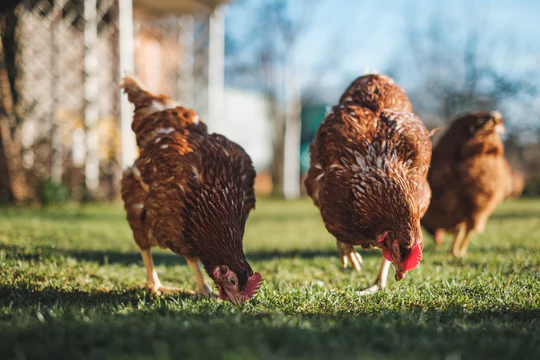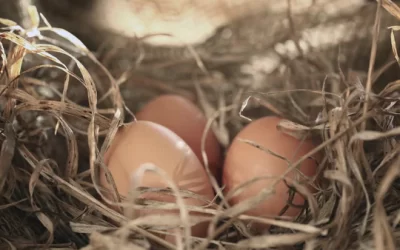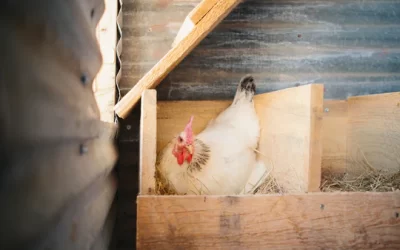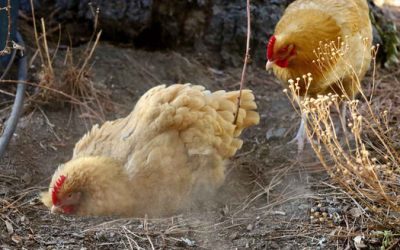Whether you are just starting out with your first flock or you have been raising chickens for years, it is always necessary to know what your chickens can and can’t eat.
Ensuring your chickens get the nutrition and variety they need is important. Chickens need a balanced feed with carbohydrates, fats, proteins, vitamins, and minerals, which is vital to chickens and their eggs.
Many chicken owners follow a 90/10 rule for feeding. Provide complete feed for at least 90% of your chickens diet, and the remaining 10% can be filled with herbs, treats, scratch grains, etc.
One of the best ways to care for your chickens and their diet is by providing them with herbs. There are a variety of herbs that are beneficial to a chicken’s health, and they are fairly inexpensive and easy to grow, depending on the climate. Continue reading for a list of the best herbs for your chickens.
Lavender
This herb is a natural stress reliever, which can benefit the laying and sitting hens in your flock. The best way to give this herb to your flock is to add it fresh or dried to dust baths or nesting boxes.
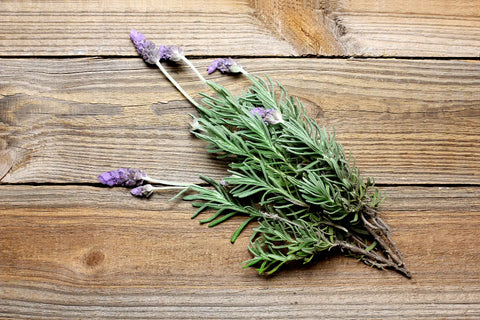
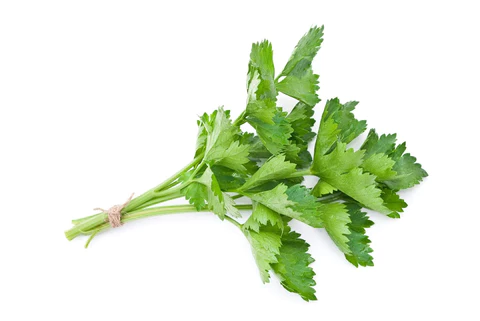
Parsley
This herb is very high in nutrients and will give your chickens a vitamin boost. Parsley can also aid in blood vessel development. You can give this to your chickens fresh so they can eat it as they want, or it can be added dry into their feed.
Sage
This herb is great for the overall health of your chickens. It also acts as an antioxidant and can help combat salmonella. You can add this dried herb to your chicken’s daily feed or give it to your flock fresh.
Oregano
This herb strengthens the immune system of your flock and guards against common poultry illnesses. Including avian flu, salmonella, and more. You can give Oregano to your chickens fresh or mix the dried herb into their daily feed.
Rosemary
This herb contains a variety of great benefits for your chickens. It is an excellent deodorizer for your chicken coop. Rosemary is also a great pain reliever and respiratory health support for your chickens.
Additionally, it can be used as an insect repellent. To get the most benefits out of Rosemary, it should be planted around the chicken coop.
Mint
This is a great natural repellent for mice and insects. Mint is safe for your flock to eat and provides a natural way to lower their body temperature. Which is great for keeping chickens cool in the summer.
There are a few ways to give this herb to your chickens, including adding it fresh or dried to nesting boxes. Mint is also a great way to calm your laying hens.
Comfrey
Comfrey will provide your chickens with a vitamin boost because it has high levels of Vitamin B12 and A. This will also give your chicken’s eggs deep yellow yolks. This herb is a great source of low fiber and high protein for chickens.
Comfrey can be plated at all times of the year and is durable enough to live in extreme temperatures.
Calendula
Calendula is known best for its healing properties. It also has high oleanolic acid content and is great for its anti-bacterial and antioxidant properties. The best way to give this herb to your chickens is by adding it to their feed. Due to Calendula’s yellow petals, the color of your chicken’s egg yolks will be enhanced naturally.
Calendula is also another great herb for helping repel insects naturally.
Thyme
Thyme is a great herb for aiding in the respiratory health of your chickens. It also has antibiotic and antibacterial properties. You can provide your flock with Thyme by giving it to them fresh so they can eat it when they choose, or you can add the dried herb to their feed.
Cilantro
Chickens LOVE eating cilantro, which is a great source of vitamins A, C, and K. This herb can strengthen a chicken’s immune system and can help aid bone support.
Cilantro is a great source of antioxidants, and the seeds have anti-parasitic properties. This herb is best given to your flock fresh so they can eat it when they choose.
Herbs to Avoid Giving Your Chickens
While there are a variety of beneficial herbs for chickens, there are also many toxic herbs.
Cocklebur
It is toxic to livestock. Poultry can develop acute or chronic toxicity as a result of consumption. In acute cases, death is usually due to liver failure and may occur within hours after the onset of clinical signs. Birds that survive acute poisoning usually will develop signs of chronic liver disease.
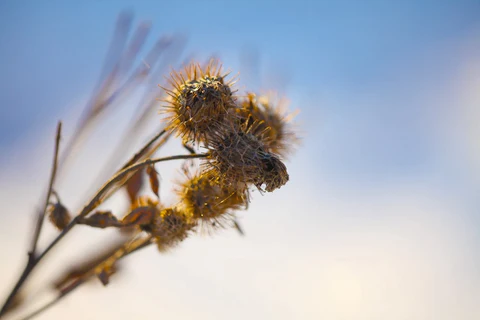
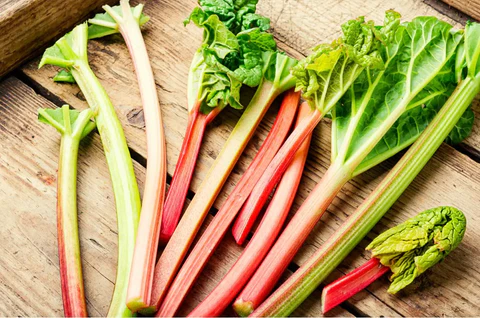
Rhubarb
Rhubarb leaves contain oxalic acid, which can cause digestive discomfort in small doses, tremors, increased salivation, and jaundice. It is unlikely to be fatal to an adult bird, but it may kill younger chickens.
Bracken
Contains carcinogens associated with oesophageal and stomach cancer. It should not be consumed by humans or livestock.
Delphinium
All parts of the Delphinium plant are toxic. The younger parts of the plant are especially dangerous.
Fern
There is a certain variety of ferns that are toxic to chickens, including the bracken fern. Bracken fern poisoning in chickens can lead to anemia, weight loss, and muscle tremors. Significant amounts of the plant must be consumed to be toxic, but it is important to be vigilant about removing them because they grow aggressively.
Ground Ivy
Toxic to chickens and other livestock.
Hemlock
Very deadly to chickens as well as other animal species and humans.
If you are not sure whether it is safe to give your chickens a certain herb, research it to be on the safe side.
If your chickens enjoy an herb we didn’t mention, let us know in the comments!
RELATED ARTICLES
When Will My Hens Start Laying Eggs
If you have been raising your flock from chicks, you are probably anxiously awaiting for them to start laying eggs. Many chicken owners wonder, when will my chickens start laying eggs? When your pullets (young female chickens) actually start laying eggs though, has...
How To Tell If A Hen Is Broody
Wondering how to tell if a hen is broody? Read on and discover behaviors, signs, and what to do. What Does Broody Mean?Merriam-Webster defines broody as "being in a state of readiness to brood eggs that is characterized by cessation of laying and marked by changes in...
Create A Dust Bathing Box For Healthy Chicken
What Is Frostbite? Dust bathing is a way for chickens to clean themselves. There are a variety of purposes for dust bathing. When chickens start to feel dirty, grimy, or itchy, their instincts kick in and they dig in the soil and burrow. They use their wings to throw...

